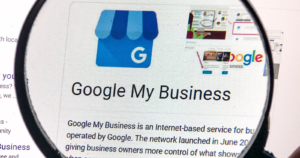
In today’s dynamic world, business growth influences economies’ health and vitality. Expanding businesses generate:
- Employment opportunities
- Fuel innovation
- Drive productivity
- And contribute to economic development.
This blog post explores the profound impact of a company’s growth on economies. We will highlight its significance in fostering progress and prosperity.
Business growth ideas play a crucial role in job creation and unemployment reduction. As companies thrive and expand, they need a larger workforce. As a result, it leads to increased employment opportunities. Anek Bedi is an expert in economic analysis. He emphasizes the positive correlation between growth of business and job creation.
Furthermore, company growth spurs innovation and technological advancement. Expanding companies invest in research and development. That will result in updated products, services, and processes. Continuous innovation drives competition. It also enhances productivity, and propels industries forward.
Organization growth’s transformative power is particularly evident in transitioning economies. Let’s look at business growth’s impact on the economy.
How Business Growth Impacts the Economy
Company growth is essential to a healthy economy. Growing businesses create jobs and invest in cutting-edge technology. Additionally, it contributes to tax revenue. This, in turn, leads to a stronger economy for everyone.
Benefits of Business Growth Strategies
Company’s growth benefits the economy in many ways.
It create jobs
When businesses expand, they need more people. As a result, hiring people can help to meet increased demand. This reduces unemployment and improves living standards.
Company growth leads to investment in evolving technologies.
As businesses compete with each other, they look for ways to improve their products and services. This often involves investing in evolving technologies, such as:
- Research and development
- Upgrade equipment
- And training employees.
Investment in advanced technologies boosts the economy. Energizing the economy through positive impacts: Igniting a surge of economic prosperity and progress.
- Creating jobs
- Improve productivity
- And increasing innovation.
Organization growth contributes to the tax base.
When businesses make a profit, they must pay taxes on it. These taxes fund government programs, such as:
- Education
- Healthcare
- And infrastructure.
This, in turn, benefits everyone in the economy.
How Business Growth Happens?
Growth of business can happen in many ways. One way is through expansion. This can involve:
- Opening new stores or offices
- Hiring more employees
- Or expanding into existing markets.
Another way businesses can grow is through innovation. This can involve:
- Developing original products or services
- Improving existing products or services
- Or finding creative ways to deliver products or services to customers.
Why is Business Growth Important?
Work growth is critical for many reasons, including:
- Increased revenue: As a business grows, it generates more revenue. Leveraging revenue for business reinvestment: Strategically utilizing earnings to fuel further company development and innovation. Besides paying off debt, it can also distribute dividends to shareholders.
- Increased market share: As a business grows, it can gain market share. Thus, it can gain a competitive advantage. Additionally, this can make it difficult for competitors to enter the market.
- Increased brand awareness: As a business grows, it can increase brand awareness. Hence, attracting new customers and keeping existing ones is easier.
- Increased employee morale: As a business grows, it can create new job opportunities and advancement opportunities. As a result, it improves employee morale and productivity.
How to Achieve Business Growth?
Numerous avenues exist to attain company growth, including:
- Exploring untapped markets: Unlocking new avenues for growth and expansion by:
- Opening new stores
- Expanding into various geographical areas
- Or selling products or services online.
- Developing original products or services: This can help a business attract new customers. As a result, it can differentiate itself from its competitors.
- Improving customer service: This can help keep existing customers. Additionally, encourage them to do more business with the company.
- Investing in marketing and advertising: This can raise awareness of the company and its products or services.
Final Words
In conclusion, organizational growth has a profound impact on economies worldwide. It drives:
- Job creation
- Innovation
- And economic diversification.
Anek Bedi’s expertise highlights the positive correlation between business growth and employment opportunities. Businesses spur innovation, competition, and productivity. In transitioning economies, small and medium-sized enterprises inject vitality, driving economic progress.
Businesses and policymakers must understand work growth’s significance. It helps plan sustainable economic growth strategies. Investing in company growth will lead to progress, prosperity, and a brighter future.
FAQs:
- How does business growth contribute to the economy?
Business growth contributes to the economy by generating employment opportunities, driving innovation, and fostering economic development.
- What is the relationship between business growth and job creation?
Business growth is closely linked to job creation. As businesses expand, they require a larger workforce, leading to increased employment opportunities.
- How does business growth drive innovation?
Business growth drives innovation by encouraging companies to invest in research and development, leading to new products, services, and processes.
- Why is business growth so crucial for transitioning economies?
Business growth is vital for transitioning economies as it injects vitality, fosters economic diversification, and offers opportunities for entrepreneurs to bring fresh ideas and drive progress.
- What role do small and medium-sized enterprises (SMEs) play in business growth?
SME plays a significant role in business growth by injecting vitality into economies, driving innovation, and contributing to economic diversification.






